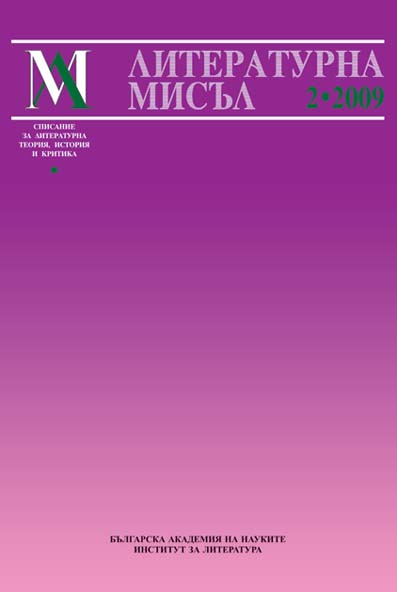Просвещението и православният свят
The Enlightenment and Orthodox World
Author(s): Larry WolffSubject(s): Anthropology
Published by: Институт за литература - БАН
Keywords: The Enlightenment; Orthodox World
Summary/Abstract: This short monograph considers the perception of Orthodoxy from outside the Orthodox world during the age of Enlightenment. It was originally conceived as a lecture to be presented in Athens, at the invitation of the great Greek historian of political thought, Paschalis Kitromilides. Inspired by Kitromilides’ own work on the Enlightenment within the Orthodox world, I attempted to reverse the perspective and to offer a reciprocal study of the enlightened perspective on Orthodoxy. Beginning with the accounts of Western travelers, I analyzed a persistent pattern of disparagement by travelers, focusing on three general areas: 1) the aesthetic qualities of Byzantine icons, completely unappreciated by these travelers; 2) the allegedly excessive character of Orthodox ritual, which appeared as superstition to the eye of the Western Enlightenment; and 3) the alleged ignorance of the Orthodox clergy (a problem also noted within the Orthodox world, as Catherine the Great, for instance, established seminaries in Russia). My analysis of these categories of criticism suggests that in no case were they fundamentally religious in nature, but, rather, focused on more general issues of “civilization,” such as education, artistic training, or enlightenment versus popular superstition. In this regard, the negative view of Orthodoxy was actually integrated into the entirely secular idea of Eastern Europe, transcending Orthodox, Roman Catholic, and Muslim lands and peoples. The second part of the monograph addresses the political perception of Orthodoxy that emerged after 1768, at the time of Catherine’s war against the Ottoman Empire. For the first time, enlightened observers in the West became aware of the possible political significance of Orthodoxy for mobilizing populations. This was a matter of great interest, and sometimes concern, especially along the Triplex Confinium where the Habsburg and Venetian states bordered the Ottoman Empire, and where Orthodox populations were present. One of the things I was interested to note in the eighteenth-century discussions was an implicitly “Huntingtonian” perception of a political clash of civilizations based on the difference of religion. In fact, I initially presented this lecture in the year 2000, immediately after the NATO war in Yugoslavia in 1999, a moment when Western observers (in the United States and Europe) worried about the Huntingtonian emergence of an “Orthodox axis” sponsored by Russia. It was interesting to observe some of the eighteenth-century anticipations of this perspective as Western Europe worried over Catherine’s mobilization of Orthodox sentiment within the Ottoman Empire during the Russian-Ottoman war of 1768-1774.
Journal: Литературна мисъл
- Issue Year: 2009
- Issue No: 2
- Page Range: 26-63
- Page Count: 37
- Language: Bulgarian
- Content File-PDF

